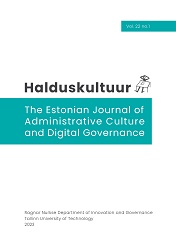Plan Bee: The Case of an Islamic Honey Cooperative in Morocco
Plan Bee: The Case of an Islamic Honey Cooperative in Morocco
Author(s): Salah ChafikSubject(s): Islam studies, Economic policy, Economic development, Socio-Economic Research
Published by: Ragnar Nurkse School of Innovation and Governance, Tallinn University of Technology
Keywords: Devolution; Althusius; Natural Resource Management; ICCA; zawāyā; Islamic Indigenous Cooperative; Islamic Beekeeping; Taddaret Inzerki;
Summary/Abstract: Taddaret Inzerki is an indigenous honey cooperative (i.e. apiary) in rural Morocco that has operated autonomously for centuries. To understand the devolved status of the apiary, and accordingly, explore the often overlooked field of (non-Western) traditional communitybased administrative systems and practices, this essay first provides a brief summary of devolution theory (based on Althusius’ Politica) and the track record of similar policies in the context of natural resource management. The case of Taddaret Inzerki, which is the core contribution of the essay, is then presented along the lines of a Geertzian thick description, revealing both the apiary’s historical foundation and its three enduring institutional goals stemming from the rules of the commons: ensuring the welfare of bees, properly treating fellow beekeepers, and fulfilling Islamic requisites. The result for the villagers upholding their sacred craft of Islamic beekeeping is that they are able to generate a reliable livelihood and preserve their shared natural resource commons. However, this essay argues that this administrative arrangement also proves beneficial at the national and even global level, and concludes by suggesting potential avenues of future research.
Journal: Halduskultuur
- Issue Year: XXII/2022
- Issue No: 1
- Page Range: 4-26
- Page Count: 23
- Language: English

